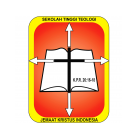
Publications Ethics
SIAP, e-ISSN 0000-0000 (Online), is a peer-reviewed journal published by Sekolah Tinggi Teologi Jemaat Kristus Indonesia, Salatiga. This statement outlines the ethical responsibilities of all parties involved in the publication process, including the author, chief editor, Editorial Board, peer reviewers, and the publisher. This document is aligned with the guidelines established by the Committee on Publication Ethics (COPE).
Ethical Guidelines for Journal Publication
Publishing in SIAP, a peer-reviewed journal, is critical for building a credible and respected knowledge base. It reflects the quality of the work by authors and their supporting institutions. Peer-reviewed articles support scientific rigor, and maintaining ethical standards is essential for authors, editors, reviewers, and publishers.
Sekolah Tinggi Teologi Jemaat Kristus Indonesia, Salatiga, as the publisher of SIAP, takes its role seriously in maintaining ethical integrity throughout the publication process. The publisher ensures that no commercial interests, such as advertising or reprints, influence editorial decisions. Additionally, the publisher and Editorial Board will facilitate communication with other journals and publishers when necessary.
Publication Decisions
The SIAP editor is responsible for deciding which articles are accepted for publication based on their quality and relevance to the field. The editor is guided by the journal’s editorial policies and legal regulations, such as those addressing libel, copyright infringement, and plagiarism. The editor may consult with reviewers and other editors to make these decisions.
Fair Play
Editors evaluate manuscripts based on their intellectual merit, without considering the authors' race, gender, sexual orientation, religious beliefs, ethnicity, citizenship, or political views.
Confidentiality
Editors and editorial staff must keep information about submitted manuscripts confidential and may only disclose information to the corresponding author, reviewers, editorial advisors, and the publisher when necessary.
Disclosure and Conflicts of Interest
Unpublished material disclosed in a submitted manuscript should not be used in an editor’s research without explicit written consent from the author.
Duties of Reviewers
Contribution to Editorial Decisions
Peer review helps the editor make decisions and provides feedback to authors for improving their papers.
Promptness
Reviewers who feel unqualified or unable to provide a timely review should inform the editor and withdraw from the process.
Confidentiality
Manuscripts received for review must be treated as confidential. Reviewers should not share or discuss the manuscript with others unless authorized by the editor.
Standards of Objectivity
Reviews should be conducted objectively, and personal criticism of the author is inappropriate. Feedback should be provided with clear, supportive reasoning.
Acknowledgment of Sources
Reviewers should identify relevant work that has not been cited. They should notify the editor of any substantial overlap between the manuscript and other works they are familiar with.
Disclosure and Conflict of Interest
Reviewers must keep privileged information confidential and should not review manuscripts in which they have conflicts of interest with the authors or affiliated institutions.
Duties of Authors
Reporting Standards
Authors must present an accurate and objective account of their research, providing sufficient detail for others to replicate the study. Fraudulent or knowingly inaccurate statements are unethical and unacceptable.
Data Access and Retention
Authors may be asked to provide raw data during the review process and should be prepared to provide public access to such data, if feasible, and retain the data for a reasonable period after publication.
Originality and Plagiarism
Authors must ensure their work is original and that they properly cite or quote any sources used.
Multiple, Redundant, or Concurrent Publication
Authors should not submit the same manuscript to multiple journals concurrently, as this is unethical and unacceptable.
Acknowledgment of Sources
Authors must properly acknowledge the work of others that influenced their research.
Authorship of the Paper
Authorship should be limited to those who made significant contributions to the research. All co-authors should approve the final version of the manuscript and agree to its submission for publication.
Fundamental Errors in Published Works
If an author discovers a significant error in their published work, they must promptly notify the editor or publisher and cooperate to retract or correct the paper.





